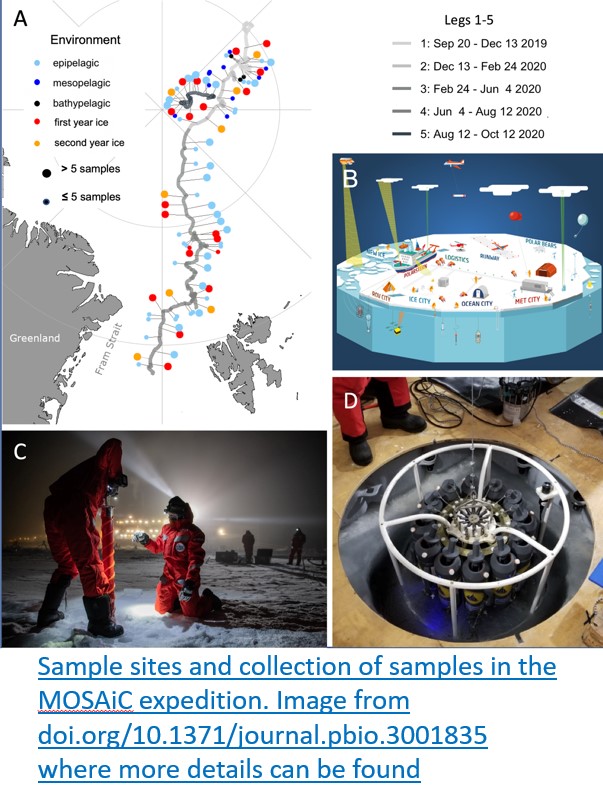Project Description
Supervisors
Professor Vincent Moulton, Computing Sciences, University of East Anglia – contact me
Professor Thomas Mock, ENV, UEA
Dr Richard Leggett, The Earlham Institute
Dr Fanny Monteiro, School of Geographical Sciences, University of Bristol

Scientific background
Arctic ecosystems are among those that are most affected by climate change anywhere on Earth, with air temperatures rising four times faster than the global average. Despite being one of the most inhospitable environments on the planet, the Arctic Ocean supports a complex ecosystem including fish, marine mammals, and zooplankton. Microbes are the base of this food web and play important roles in biogeochemical cycles. However, due to inaccessibility of the Arctic, there is a fundamental lack of understanding into how microbial communities in the Central Arctic Ocean respond to seasonal changes. To fill this gap of knowledge, the 2019-2020 Multidisciplinary Observatory for Study of the Arctic Climate (MOSAiC) expedition undertook the largest ever survey of the Arctic Ocean, including the first ever year-long time series of Arctic metagenomes and metatranscriptomes.
Research methodology
The aim of this project is to analyse and model changes in microbial diversity and traits over the course of a year, using metagenomic and metatranscriptomic data from the MOSAiC expedition. The student will synthesise multiple data sources from MOSAiC, including biogeochemical measurements, oceanographic data, and the MOSAiC metagenome and metatranscriptome time-series. Gene abundance and expressions level will be used as indicators of physiological traits, such as ice-adaptation, nutrient metabolism, or autotrophy. The student will become familiar with both traditional species distribution models and machine learning tools, such as hierarchical modelling of species communities and Gaussian processes and will use them to build models describing seasonal changes in microbial communities. In the final part of the project, these models will be combined with broader oceanographic and climate predictions to forecast how Arctic microbial communities and traits might change in response to climate change.
Training
You will work with a world-leading team of experts in Arctic microbial genomics and ocean modelling based at UEA, The Earlham Institute and University of Bristol as well as other members of the MOSAiC consortium. They will gain new skills in areas including bioinformatics, data analysis, machine learning, ecosystem modelling, and marine microbiology.
Person Specification
We are looking for an enthusiastic student who is excited about applying interdisciplinary techniques to understand the potential effects of global change on oceanic microbes.
Acceptable first degree subjects: Computer Science, Data Science
